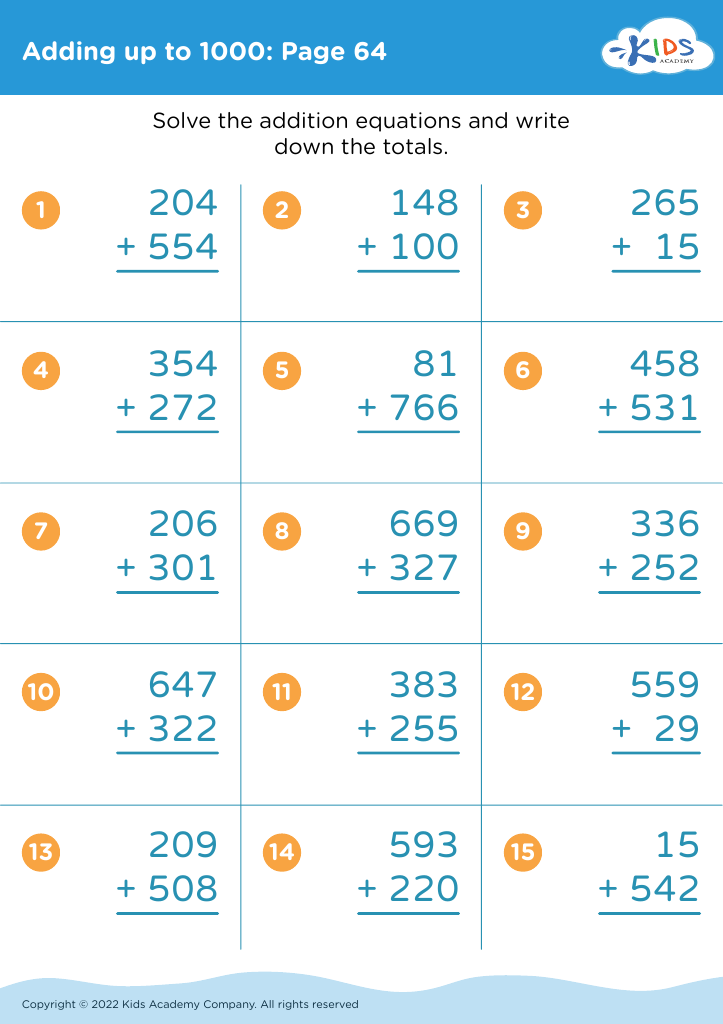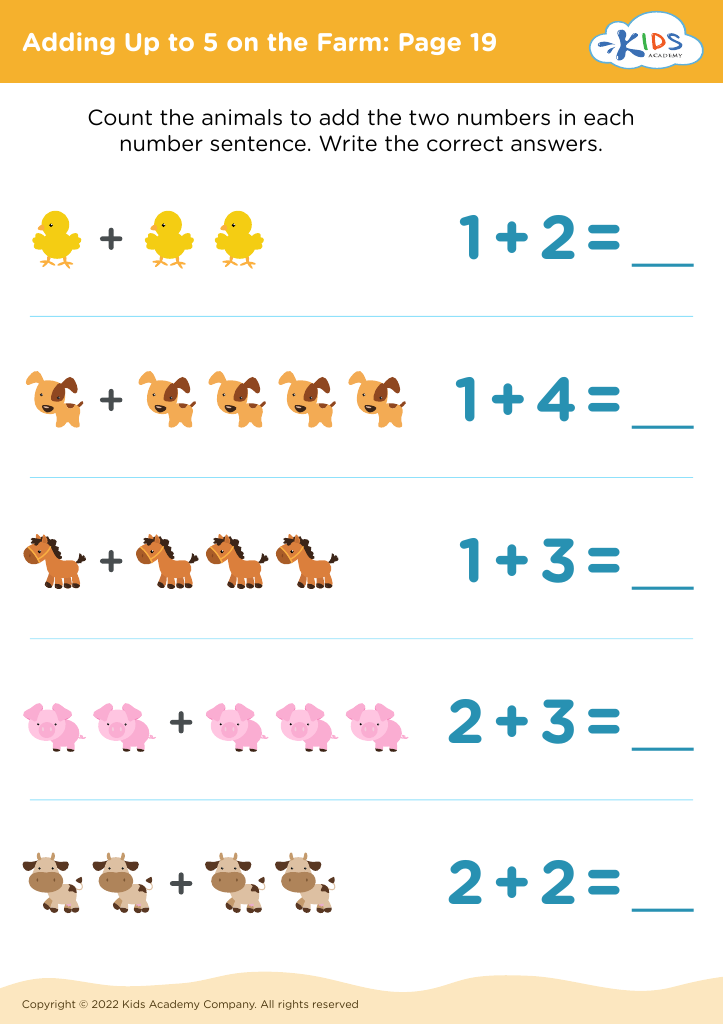Enhancing observation skills Addition Worksheets for Ages 4-7
3 filtered results
-
From - To
Welcome to our "Enhancing Observation Skills Addition Worksheets" designed for children aged 4-7! These engaging worksheets help young learners sharpen their observation abilities while mastering basic addition skills. Tailored to boost critical thinking, each activity encourages kids to identify patterns, understand quantities, and practice problem-solving in a fun and interactive way. Perfect for classroom or home use, our worksheets cater to various learning styles, ensuring every child can thrive. Foster a love for math and enhance observational skills simultaneously—download our easy-to-use resources today and watch your child's confidence and capabilities grow!
Enhancing observation skills in children aged 4-7 is crucial for their overall development and learning. During these formative years, children are naturally curious and eager to explore their surroundings. Teachers and parents should foster this inclination by encouraging observation skills, which can enhance cognitive abilities, critical thinking, and attention to detail.
Effective observation allows children to notice patterns, draw connections, and develop problem-solving skills. In mathematics, observing quantities and relationships helps solidify concepts like addition. For instance, noticing that 2 apples and 3 apples make 5 encourages children to visualize and understand addition rather than merely memorize facts.
Moreover, strong observation skills promote language development; when children articulate what they see, they build vocabulary and improve communication abilities. This practice also nurtures social-emotional skills, as children learn to notice and interpret the emotions of others, fostering empathy and cooperation.
Finally, enhancing these skills prepares children for lifelong learning. When students learn to observe their environment thoughtfully, it empowers them across subjects and in real-life situations. By prioritizing observation in early education, parents and teachers lay a strong foundation for children’s academic success and holistic development.



















